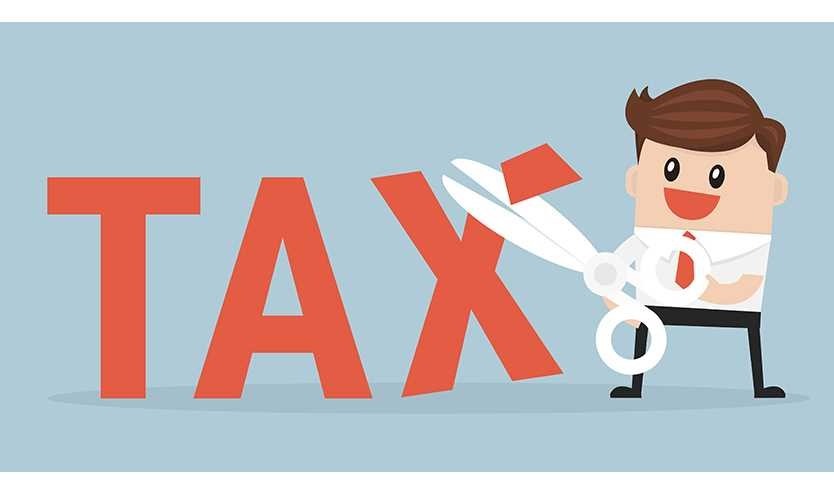If you are buying property, it is certainly a big decision and one that you will certainly never regret! After all, you have to take a home loan for buying your preferred property.
This naturally helps you avail of multifarious tax benefits and deductions. You will not have to worry about future income tax on property sale if you are aware of the deductions that you can claim seamlessly. While there is applicable tax on sale of property, you can avail of income tax deductions aplenty. It is wise to take a closer look at tax benefits and savings that you can get in case of buying a property with a home loan and also on sale of a property alike.
Tax benefits for homebuyers:
A home loan can be made more tax-efficient in case you suitably understand the sections of the Income Tax Act under which you can avail of tax benefits.
Section 80C:
Section 80C offers deductions on repayment of the principal amount of the home loan. You can avail of a deduction up to Rs. 1,50,000. However, you have to keep in mind that Section 80C covers investments made in PPF, SCSS (Senior Citizens’ Saving Scheme), NSC (National Savings Certificate), tax-saver FDs (Fixed Deposits) and equity-based mutual funds.
The benefit can be claimed only after the construction of the home has been completed and the completion certificate has been received by the homebuyer.
Section 24 (B):
Section 24 (B) covers tax benefits available on interest that is repaid on your home loan. The maximum amount deductible under this section is Rs. 2,00,000.
Yet, if the home has not been constructed within a period of 5 years from the end of the financial year during which the home loan was taken, the interest benefit goes down to only Rs. 30,000.
Section 80 EE:
This section works for first-time homebuyers and is provided over and above the other benefits. Homebuyers can avail of an added deduction of Rs. 50,000 subject to certain conditions:
- The value of the property bought should be lower than Rs. 50 lakh
- The maximum loan amount sought by the buyer should be within Rs. 35 lakh
- The loan must have been sanctioned between 1st April 2016 and 31st March 2017
Tax on long term capital gain/asset sale:
At present, long-term capital gains are taxable at 20%. The tax on house sale is as follows.
| Funds | Effective on 11 July 2014: | On or before 10 July 2014: | ||
| Short Term Gains. | Long Term Gains. | Short Term Gains. | Long Term Gains. | |
| Debt Funds | @ tax slab rates of the individual | @ 20% with indexation | @ tax slab rates of the individual | @ 10% without indexation or 20% (with indexation whichever is lower). |
| Equity Funds | 15% | Nil | 15% | Nil |
Calculating Capital Gains:
Calculation of capital gains is different for assets held for a longer period and for those held over a shorter period.
You should know these key terms:
- Full value consideration- Consideration received or to be received by the seller in exchange for his/her assets, which he/she transferred. Capital gains fall under chargeable tax in the year of their transfer, even if there has been no consideration received.
- Cost of acquisition- The value for which the seller acquires any capital asset.
- Cost of improvement- Expenses for making improvements to capital assets by sellers.
How to Calculate Long-Term Capital Gains:
You should start from the full value of consideration.
Deduct the following things-
- Expenditure incurred exclusively in connection with such transfer.
- Index cost of acquisition.
- Index cost of improvement.
From this result, deduct exemptions which are provided under sections 54, 54EC, 54F and 54B.
This amount is known as the long term capital gain. As per the Union Budget for 2018, long term capital gains on sale of property or equity shares/units of equity oriented funds realized post 31st March 2018 will be exempted up to Rs. 1 lakh annually.
Moreover, 10% taxes will be imposed for LTCG, in case of shares/units of equity based funds exceeding Rs. 1 lakh in a financial year minus indexation benefits. In case of a house sale, these expenses are deductible from the sale price:
- Brokerage or commission which is paid for securing a purchaser.
- The cost of stamp-papers.
- Traveling expenses which are related to the transfer.
- Where property was inherited, expenditure incurred due to procedures associated with the will and of the inheritance, obtaining the succession certificate and costs of executor may be allowed in some cases.




